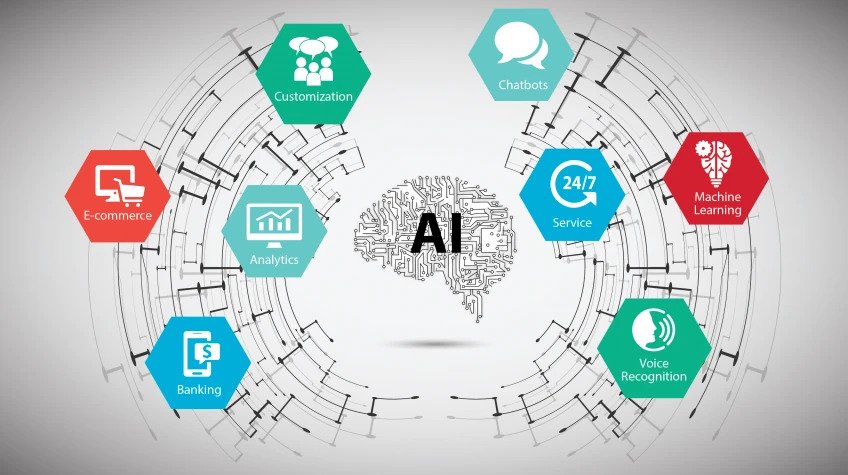In the fast-evolving world of digital marketing, staying ahead of the curve is essential. Artificial Intelligence (AI) is no longer just a buzzword; it’s a powerful tool that can transform your content strategy. Whether you’re looking to improve efficiency, enhance SEO, or engage your audience more effectively, AI has the potential to revolutionize the way you create and manage content. This article will explore how AI can reshape your content strategy, providing you with practical tips and actionable insights to maximize its impact.
Understanding AI in Content Strategy
What is AI in Content Strategy?
AI in content strategy refers to the use of artificial intelligence technologies to aid in the creation, management, and optimization of content.
These tools use complex algorithms to understand and mimic human language, allowing them to perform tasks like keyword research, content generation, and data analysis. By leveraging AI, marketers can produce high-quality content more efficiently and effectively.
Benefits of AI in Content Strategy
AI offers several advantages for content marketers. It can automate repetitive tasks, saving time and allowing marketers to focus on more strategic activities.
AI also provides data-driven insights, helping to optimize content for better performance. Additionally, AI tools can enhance the quality of content by providing real-time feedback on grammar, style, and readability.
Getting Started with AI Tools
Choosing the right AI tools is crucial for maximizing the benefits of AI in your content strategy. There are numerous options available, each with its own strengths.
Tools like Grammarly and ProWritingAid focus on improving grammar and style, while others like Jasper and Copy.ai can generate content based on your inputs. Select tools that align with your specific needs and goals, and take the time to learn how to use them effectively.
Generating Content Ideas with AI
Leveraging AI for Keyword Research
Keyword research is a fundamental aspect of any content strategy. AI tools can help you identify high-impact keywords by analyzing search trends, competition, and user intent.
Enter your core topics into an AI tool to generate a list of related keywords. This data-driven approach ensures that your content is optimized for search engines and relevant to your audience.
Exploring Untapped Content Opportunities
AI tools can identify content gaps by analyzing what topics are well-covered by competitors and what areas are underserved. This insight allows you to create content that addresses unmet needs, positioning your blog as a comprehensive resource.
Regularly monitor industry trends and evolving user interests using AI to keep your content strategy adaptive and relevant.
Creating Content Clusters
Content clusters are a strategic way to organize your content around central themes, enhancing both SEO and user experience. AI tools can help you identify and structure these clusters effectively.
Start by selecting a broad pillar topic relevant to your business and use AI to generate a list of related subtopics. This interlinking structure signals to search engines that your content is comprehensive and authoritative.
Refining Content Ideas with User Data
User data provides invaluable insights into what your audience is interested in and what content resonates with them. AI tools can analyze user behavior, preferences, and feedback to refine your content ideas.
Use this data-driven approach to create content that aligns with your audience’s interests and needs, enhancing engagement and loyalty.
Writing and Optimizing Content with AI
Drafting High-Quality Content
Drafting content can be time-consuming, but AI tools can speed up the process by generating text based on your outline and keywords.
These tools can produce initial drafts that you can then refine and personalize. This is especially useful for overcoming writer’s block and ensuring that your content is SEO-optimized from the start.
Enhancing Readability and Engagement
Readability is crucial for keeping your audience engaged. AI tools can analyze your text and suggest ways to improve readability, such as simplifying complex sentences, breaking up long paragraphs, and using a more conversational tone.
This ensures your content is easy to read and understand, keeping readers engaged from start to finish.
Optimizing for SEO
SEO is essential for increasing the visibility of your content. AI tools can help you integrate keywords naturally, optimize meta descriptions and titles, and improve internal linking structures.
These tools can also suggest schema markup to enhance your content’s appearance in search results, leading to higher click-through rates and better performance.
Real-Time Feedback and Editing
Real-time feedback is one of the most powerful applications of AI in content creation. Tools like Grammarly and Hemingway provide immediate suggestions for improving grammar, style, and readability.
SEO tools can offer real-time insights into keyword density, meta descriptions, and internal linking. This continuous feedback loop ensures your content is polished and optimized before it’s even published.
Enhancing User Engagement with AI

Crafting Engaging Introductions
The introduction is the first impression your content makes on readers. It needs to be compelling enough to draw them in and encourage them to read further.
AI tools can help craft engaging introductions by analyzing successful content in your niche and suggesting opening lines or hooks. These might include intriguing questions, surprising facts, or relatable anecdotes that grab attention.
Developing Strong Headlines
Headlines play a crucial role in attracting readers and improving SEO. A strong headline is clear, intriguing, and promises value.
AI tools can generate multiple headline options based on your content, helping you choose the most effective one. For example, instead of a generic headline like “SEO Tips,” an AI tool might suggest “10 Proven SEO Tips to Boost Your Website Traffic.”
Building Engaging Content
Keeping readers engaged throughout your article is essential for reducing bounce rates and improving SEO. AI tools can help by suggesting ways to make your content more interactive and interesting.
This might include adding questions to prompt reader reflection, incorporating storytelling elements, or suggesting relevant examples and anecdotes. These techniques make your content more relatable and engaging.
Personalizing Content
Personalized content resonates more with readers and makes them feel valued. AI tools can analyze your audience’s preferences and suggest ways to tailor your content.
This could involve adjusting the tone to match your audience’s preferences, addressing specific pain points, or incorporating relevant examples and references that your readers will find interesting.
Using Multimedia
Incorporating multimedia elements like images, videos, and infographics can significantly enhance your content’s engagement. AI tools can suggest the best places to insert these elements to maximize impact.
They can also help generate captions and descriptions that improve SEO and provide additional context for your readers.
Enhancing Content with Data and Insights
Using data and insights can add credibility to your content and make it more persuasive. AI tools can help you find relevant data points and integrate them into your content seamlessly.
For instance, if you’re writing about SEO trends, AI can help you gather and present data on the latest search engine algorithm updates, user behavior statistics, and case studies from successful websites. This not only enhances the depth of your content but also positions you as an authority in your field.
Enhancing Content Distribution with AI
Optimizing Publishing Schedules
Effective content distribution requires strategic planning of publishing schedules. AI tools can analyze audience behavior and engagement patterns to determine the optimal times for posting content. By scheduling your posts when your audience is most active, you can maximize visibility and engagement.
For startup founders, using AI to fine-tune your publishing schedule ensures that your content reaches the widest possible audience. Tools like Buffer and Hootsuite use AI to recommend the best times to post on various platforms based on historical performance data.
This data-driven approach can significantly enhance the impact of your content distribution strategy.
Tailoring Content for Different Platforms
Each content distribution platform has its own unique characteristics and audience preferences. AI tools can help tailor your content to suit each platform, ensuring it resonates with the intended audience.
For example, the tone and format that work on LinkedIn may not be as effective on Instagram or Twitter. AI can analyze platform-specific trends and suggest modifications to optimize your content for each channel.
This might include adjusting the length of your posts, incorporating relevant hashtags, or selecting the most engaging images. By customizing your content for each platform, you can enhance engagement and drive more traffic to your site.
Enhancing Email Marketing Campaigns
Email marketing remains a powerful tool for content distribution. AI tools can optimize your email campaigns by personalizing content, segmenting your audience, and determining the best times to send emails.
AI can analyze subscriber behavior to predict what type of content they are most likely to engage with, allowing you to tailor your messages accordingly.
For instance, if a segment of your audience consistently engages with content related to “startup funding,” AI can help create targeted email campaigns that focus on this topic.
Additionally, AI can optimize subject lines, preview text, and email layouts to improve open and click-through rates.
Leveraging AI for Social Media Management
Social media is a critical component of content distribution, and AI can enhance your social media management efforts. AI tools can analyze engagement data to determine which types of content perform best on each platform, helping you create more effective social media posts.
For example, if AI analysis reveals that video content receives higher engagement on Facebook, you might prioritize creating and sharing more video posts on that platform.
AI can also assist in scheduling posts, responding to comments, and analyzing the performance of your social media campaigns.
For startup founders, leveraging AI for social media management ensures that your content reaches the right audience and achieves maximum impact. This strategic approach can help build a strong online presence and foster community engagement.
Utilizing AI for Content Syndication
Content syndication involves distributing your content across multiple platforms to increase its reach. AI tools can automate and optimize this process, ensuring your content is published at the right times and on the right platforms to maximize visibility and engagement.
AI can track the performance of syndicated content, providing insights into which platforms and formats are most effective. This allows you to refine your syndication strategy over time, ensuring that your content consistently reaches a broad and engaged audience.
For startups, effective content syndication can significantly expand your audience and drive more traffic to your site. Use AI to streamline the syndication process, ensuring your content reaches the widest possible audience with minimal effort.
Monitoring and Adjusting Distribution Strategies
Content distribution is an ongoing process that requires continuous monitoring and adjustment. AI tools can provide real-time insights into the performance of your distribution efforts, highlighting areas for improvement and opportunities for growth.
Regularly review key metrics such as reach, engagement, click-through rates, and conversions to assess the effectiveness of your distribution strategy. Use AI to identify patterns and trends, and make data-driven adjustments to optimize your efforts.
For startup founders, staying agile and responsive to distribution data ensures that your content strategy remains effective and aligned with your business goals. By continuously refining your approach, you can maximize the impact of your content and achieve sustained growth.
Future Trends in AI-Driven Content Strategy

Advancements in Natural Language Processing
Natural Language Processing (NLP) is a critical component of AI that continues to evolve rapidly. Future advancements in NLP will enable AI tools to understand and generate human language with even greater accuracy and nuance.
This means AI will be able to create more sophisticated and contextually relevant content, improving both the quality and authenticity of AI-generated text.
For startups, staying abreast of these advancements ensures you can leverage the latest AI capabilities to enhance your content strategy. Use cutting-edge NLP tools to create content that is not only optimized for SEO but also engaging and meaningful for your audience.
Emotion AI
Emotion AI, also known as affective computing, can analyze and respond to human emotions. Integrating Emotion AI into your content strategy can help tailor your writing to evoke specific emotional responses from your readers.
This can enhance engagement and connection, making your content more impactful and memorable.
For startups, creating emotionally intelligent content can humanize your brand and make your messages more compelling. By understanding and leveraging the emotional triggers of your audience, you can create content that not only informs but also emotionally engages, leading to higher levels of reader loyalty and advocacy.
AI-Powered Visual Content Creation
AI is not limited to text; it’s also transforming visual content creation. Future AI tools will offer enhanced capabilities for generating images, infographics, and videos.
Integrating these visuals into your blog can significantly boost engagement and make your content more appealing and accessible.
For startups, leveraging AI to enhance visual content ensures your blog posts are more engaging and impactful. This not only attracts more readers but also encourages them to share your content, expanding your reach organically.
AI-Driven Content Personalization
Personalization is key to creating engaging and relevant content. Future AI tools will offer even more advanced personalization capabilities, allowing you to tailor content to individual user preferences with greater precision.
This includes personalizing recommendations, adjusting content based on user behavior, and delivering tailored messages in real-time.
For startups, implementing AI-driven personalization strategies can significantly boost user engagement and loyalty. By delivering content that is tailored to the unique needs and interests of each user, you can create a more personalized and impactful content experience.
Integrating AI with AR and VR
The integration of AI with Augmented Reality (AR) and Virtual Reality (VR) is an exciting future trend that will open up new possibilities for content creation and distribution.
AI can enhance AR and VR experiences by providing real-time data analysis, personalized recommendations, and interactive content elements.
For startups, exploring AI-driven AR and VR content can set you apart from competitors and provide a unique and immersive experience for your audience. This innovative approach can attract and engage users in new and exciting ways, driving growth and differentiation in the market.
Integrating AI with Content Marketing Strategy
Creating a Seamless AI Integration Plan
Integrating AI into your content marketing strategy requires a well-thought-out plan. Start by identifying the areas where AI can provide the most value, such as content creation, SEO optimization, or audience analysis.
Develop a roadmap that outlines how and when you will implement AI tools into these areas. This roadmap should include milestones for evaluating the effectiveness of AI and making necessary adjustments.
For startup founders, having a clear integration plan ensures that the transition to AI-enhanced processes is smooth and effective. Regularly review and update this plan based on your experience and the evolving capabilities of AI tools.
Training Your Team on AI Tools
To maximize the benefits of AI, it’s essential that your team is well-versed in using these tools. Provide comprehensive training sessions that cover the functionalities and best practices for each AI tool you plan to use.
Encourage your team to experiment with the tools and share their insights and experiences.
For example, if you’re using AI for keyword research, ensure that your content creators understand how to interpret the data and integrate it into their writing process. This collaborative approach helps your team feel comfortable with the technology and fosters a culture of innovation.
Monitoring AI Performance
Continuous monitoring is crucial for ensuring that your AI tools are delivering the expected results. Use analytics and reporting features to track the performance of AI-generated content and other AI-driven processes.
Pay attention to key metrics such as engagement rates, conversion rates, and SEO rankings.
For startup founders, regularly reviewing these metrics allows you to identify areas where AI is performing well and areas that may need improvement. Use these insights to refine your AI strategies and ensure that you are getting the most value from your investment.
Ensuring Ethical Use of AI
As you integrate AI into your content strategy, it’s important to consider the ethical implications. Ensure that your use of AI is transparent and that you maintain control over the content it produces.
Avoid over-reliance on AI to the point where it diminishes the authenticity and human touch of your content.
For example, clearly communicate to your audience when AI is used in content creation and highlight the value of human oversight. This transparency builds trust with your audience and ensures that your content remains genuine and credible.
Future-Proofing Your Content Strategy
The digital landscape is constantly evolving, and staying ahead requires a forward-thinking approach. AI tools can help you future-proof your content strategy by identifying emerging trends, predicting shifts in user behavior, and providing insights into new content opportunities.
Regularly update your content strategy based on AI-driven insights to ensure that it remains relevant and competitive. This might involve exploring new content formats, experimenting with different distribution channels, or adjusting your content focus to align with changing industry trends.
For startup founders, a future-proof content strategy supported by AI ensures long-term success and adaptability in an ever-changing digital environment.
Leveraging AI for Enhanced Content Analytics
AI-driven analytics tools can provide deeper insights into how your content is performing. These tools can analyze user interactions, track engagement patterns, and identify the factors that contribute to content success. Use these insights to make data-driven decisions that enhance your content strategy.
For instance, if AI analytics reveal that video content is performing better than written content, you might consider increasing your focus on video production. Similarly, if certain topics consistently drive higher engagement, prioritize creating more content around those themes.
Using AI for Audience Segmentation
Understanding your audience is key to delivering personalized and relevant content. AI tools can analyze audience data to identify distinct segments based on behavior, preferences, and demographics.
This allows you to tailor your content to meet the specific needs and interests of each segment.
For example, AI might identify a segment of your audience that prefers in-depth technical articles, while another segment prefers quick, actionable tips. By creating content tailored to each segment, you can improve engagement and build stronger relationships with your audience.
Enhancing Content Personalization with AI
Personalization is becoming increasingly important in content marketing. AI can help you deliver highly personalized content experiences by analyzing user data and predicting their interests and preferences.
This includes personalized content recommendations, tailored email marketing campaigns, and customized website experiences.
For startups, implementing AI-driven personalization can significantly boost user engagement and satisfaction. By delivering content that is tailored to the unique needs and interests of each user, you can create a more personalized and impactful content experience.
AI-Driven Competitive Analysis
Competitive analysis is essential for staying ahead in your industry. AI tools can provide deep insights into your competitors’ content strategies, helping you identify strengths, weaknesses, and opportunities.
Use AI to analyze the types of content your competitors produce, the topics they cover, and how well their content performs.
For startup founders, leveraging AI for competitive analysis ensures that you stay informed about industry trends and maintain a competitive edge. Regularly review your competitors’ strategies and use AI-driven insights to refine your own content approach.
Exploring New Content Formats with AI
AI can help you explore and experiment with new content formats that engage your audience. From interactive content like quizzes and calculators to immersive experiences with AR and VR, AI tools can assist in creating innovative content that captures attention.
For example, AI can help design interactive infographics that provide a dynamic way to present data. Similarly, AI-driven tools can create virtual reality experiences that offer a unique and engaging way for users to interact with your brand.
Continuous Improvement Through AI

Leveraging AI for Real-Time Content Optimization
Real-time optimization is one of the most powerful applications of AI in content creation. AI tools can analyze your content as you write, providing immediate feedback on SEO elements, readability, and engagement factors.
This allows you to make adjustments on the fly, ensuring that your content is optimized from the start. For startup founders, integrating real-time AI feedback into your writing process can drastically improve efficiency and content quality.
Tools like Grammarly and Hemingway can highlight areas where sentences are too complex or where passive voice is used, suggesting simpler and more active alternatives. SEO tools like Yoast SEO can provide instant feedback on keyword density, meta descriptions, and internal linking structures.
By incorporating these real-time adjustments, you can ensure that your content is both reader-friendly and search-engine optimized from the very beginning, reducing the need for extensive revisions later on.
Iterative Testing and Refinement
AI tools excel in iterative testing, allowing you to continuously refine your content based on performance data. This approach involves publishing your content, analyzing its performance, and making incremental improvements based on data insights.
AI tools can track a wide range of metrics, from page views and time on page to bounce rates and conversion rates.
For example, if an AI tool identifies that a particular blog post has a high bounce rate, it might suggest changes to the introduction to make it more engaging. If users are not spending much time on a page, the AI might recommend breaking up the text with more subheadings or multimedia elements to enhance readability and retention.
This iterative approach ensures that your content is constantly evolving and improving, aligned with both user behavior and search engine algorithms. For startup founders, this method allows for a dynamic content strategy that adapts to changing trends and audience preferences.
Predictive Content Performance Analysis
Predictive analysis is another advanced feature of AI that can significantly enhance your content strategy. By analyzing historical data and current trends, AI tools can predict how new content is likely to perform before it’s even published.
This enables you to make data-driven decisions about which topics to cover, what formats to use, and how to structure your content.
For instance, if predictive analysis shows that content related to “AI in healthcare startups” is likely to see a surge in interest, you can prioritize creating and publishing articles on this topic. This proactive approach ensures that your content is always relevant and timely, maximizing its impact.
For startup founders, leveraging predictive analysis means staying ahead of the curve and consistently delivering content that meets the evolving needs and interests of your audience.
AI-Driven A/B Testing
A/B testing is a powerful technique for optimizing various elements of your content, and AI can streamline this process significantly. By testing different versions of headlines, images, calls to action, or even entire articles, AI can identify which variations perform best based on user engagement and conversion data.
For example, you might use AI to test two different headlines for the same blog post to see which one attracts more clicks. Or, you could test different opening paragraphs to determine which version keeps readers engaged longer.
AI tools can automate the testing process and provide detailed insights into the performance of each variant.
For startup founders, AI-driven A/B testing ensures that your content is continuously optimized for maximum effectiveness, based on real-world data rather than guesswork.
Wrapping it up
AI is revolutionizing content strategy by optimizing every aspect of content creation and distribution. From personalized content and dynamic adaptation to real-time insights and predictive analytics, AI provides powerful tools to enhance user engagement and content reach.
For startup founders, integrating AI into your content strategy ensures that your content is not only high-quality and engaging but also strategically distributed to reach the right audience at the right time. By leveraging AI-driven techniques, you can stay ahead in the competitive digital landscape, driving sustained growth and success for your business.
READ NEXT:
- Catchy Name Ideas for Social Media Marketing Agencies
- Effective Marketing Strategies for Mary Kay Consultants
- How to Market Your Jewelry Business
- Top Marketing Strategies for Apartments in 2023
- How to Promote Your Business Effectively






















Comments are closed.